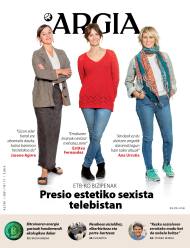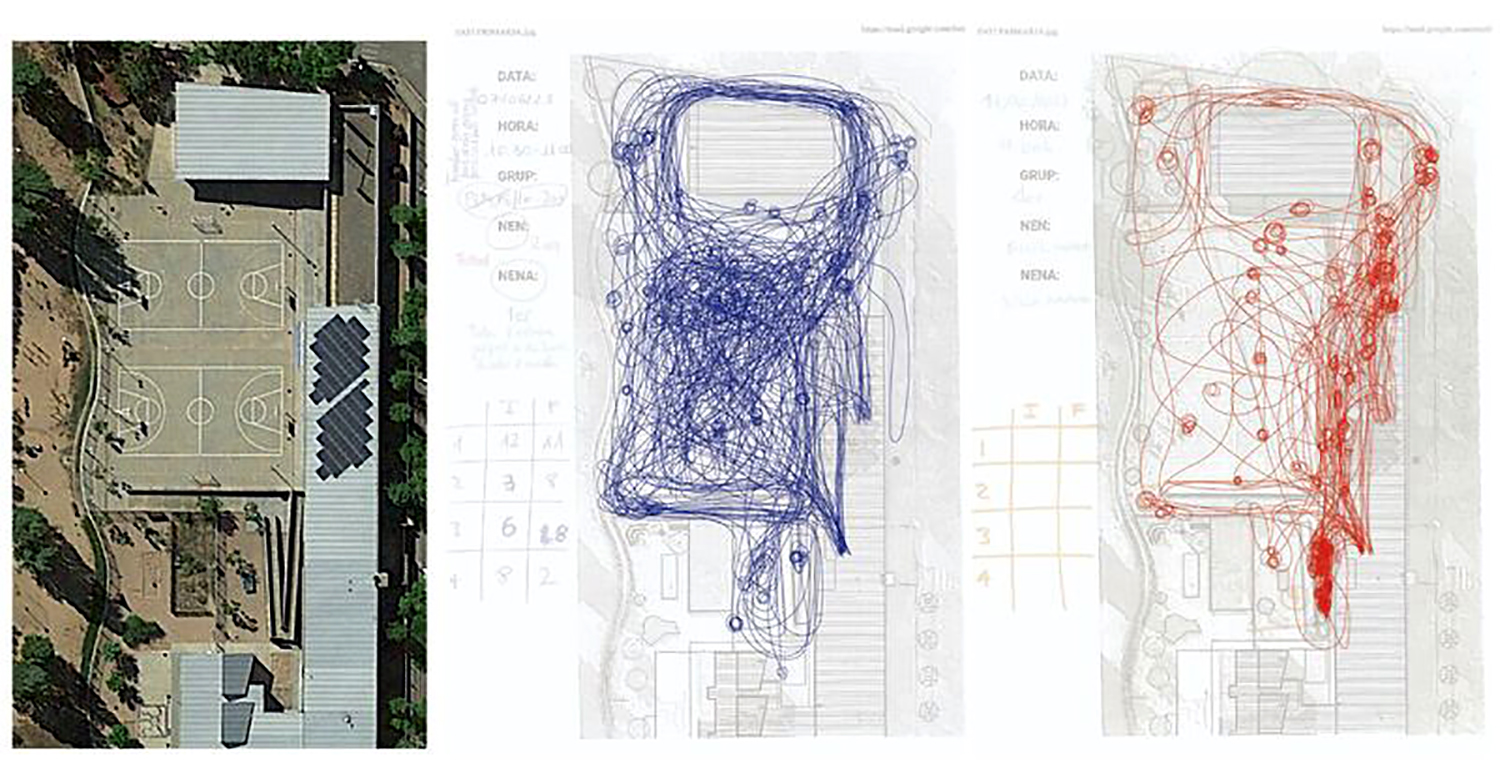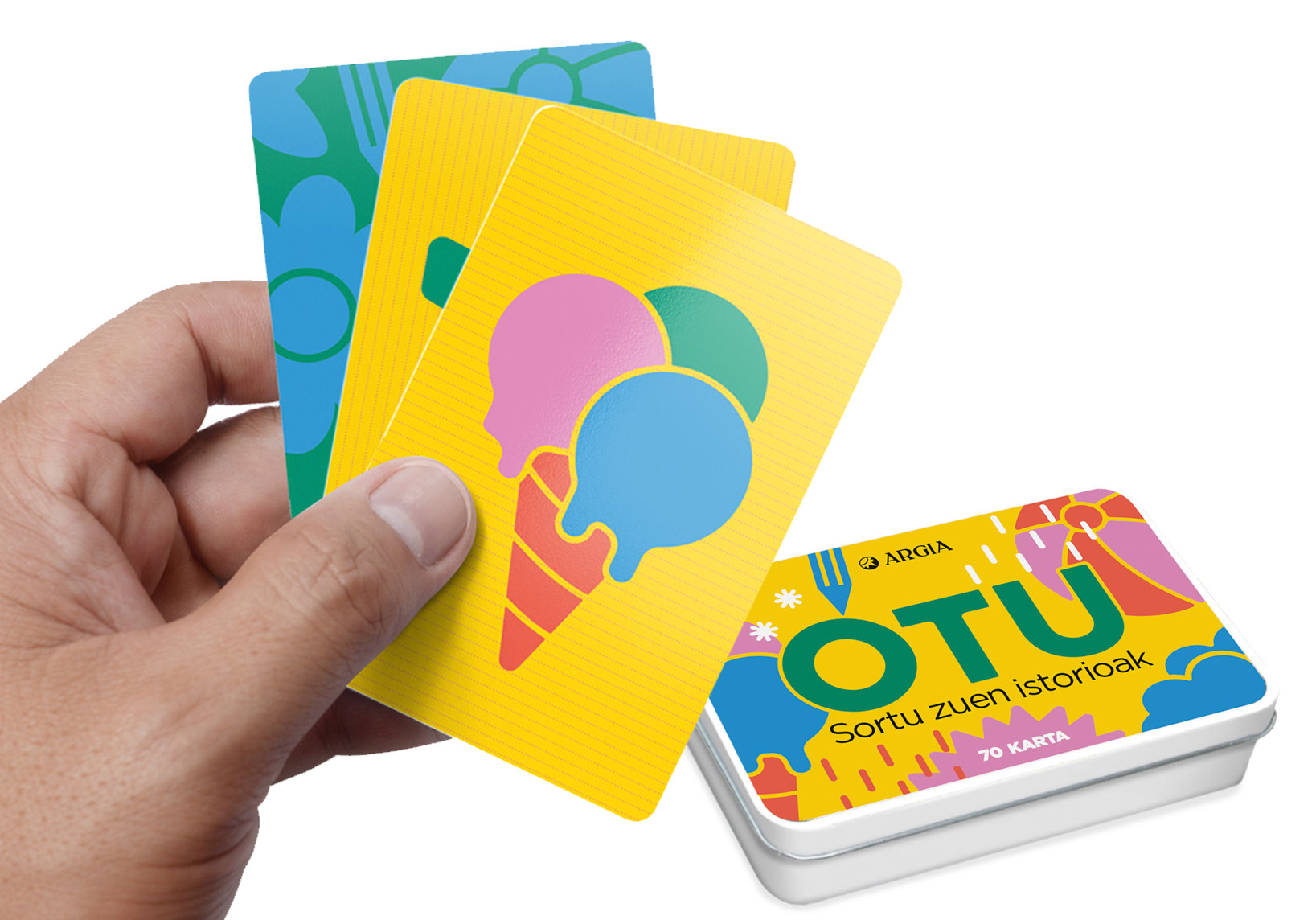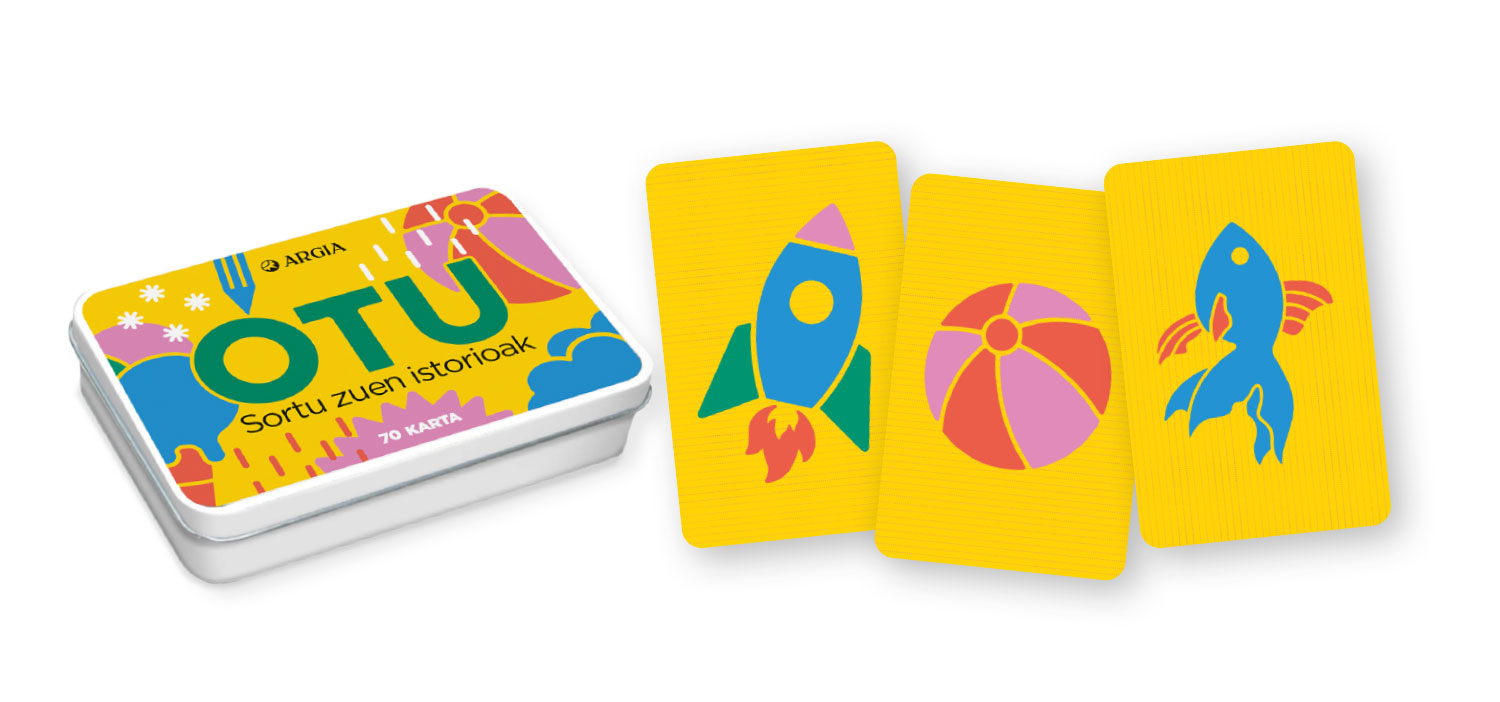"It seems that teenagers bother us, and that creates conflict."
- When and why do adolescents participate? This is the question that starts from the days organized by Oinherri. Both the needs of adolescents and their leisure time have been relegated by the managers of the pandemic and constantly presented as risk factors; the lack of empathy and the traditional view of adolescence have not contributed much. Leire San Vicente, the author of the conference, has made it clear that we need spaces of recognition, listening and real participation.
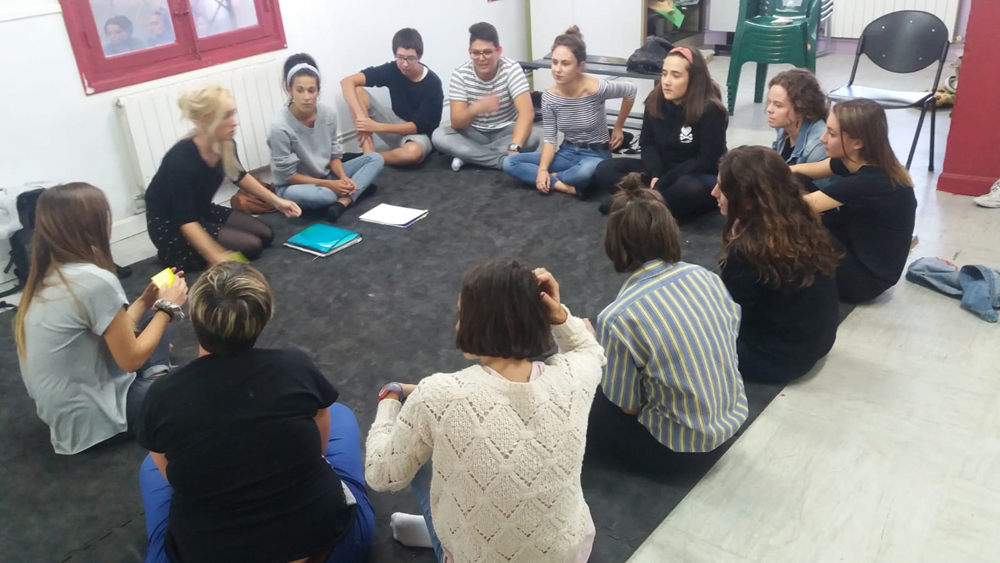
Adolescents have suffered, become angry and grieved as adults in the pandemic, more or less depending on their backpack and the means of managing the situation. “However, some of us have seen them calm and comfortable, willingly fortified at home, and although it seems paradoxical, somehow we have to worry because many of those teenagers who have been welcomed have the street as an aggressive zone and now feel compelled to return to that aggressive zone.” However, many young people are enthusiastic about the flexibilization of restrictive measures, wishing to address the experimentation so important in their age and the path of the new corners, people and relations. This is what Leire San Vicente tells us. Member of the Txatxilipurdi Leisure Association, will participate in the days that the Oinherri Public Educators Network has organized on October 16 at the Aiaraldea Activity Branch. They have a full program prepared for Saturday.
Saint Vincent is clear: adolescents have been forgotten and marginalized in the pandemic, have not been asked or listened to, and have not been given any importance to leisure, “but leisure plays a very important role in society, we are free of leisure, we share our real needs and we decide what makes us good, what helps us enjoy and grow. It is one of the most unique areas beyond the obligations that we have to connect with our interior; what we share with whom and what we build we do especially in free time.” For all this has been cut, eliminated and we have become a pressure pot, but adults have had more possibilities and resources to seek breaths, Saint Vincent says that adolescents have had it much more difficult and we have also presented them as a risk factor: “In addition to being the main group of transmission of the disease, we have been criminalized, generalizing various conducts and considering all young people as irresponsible and selfish. All the gaps we have had to deal with adolescence before the pandemic have erupted in our face.”
"We've criminalized them. All the gaps we've had to deal with adolescence before the pandemic have erupted in our face."
Adolescents, “like it or not”, like ourselves, will find ways to develop important experiences and relationships in life, “it is their obligation and it will do it”. Before late, St. Vincent has explained to us that we need to create listening spaces, to ask ourselves what they are and what they need, to take care of themselves, to feel protected. “We have done the opposite at many times. It seems that adolescents bother us and that creates conflict.”
No children, no adults
All adults have been teenagers. Why such confrontation, this criminalization of young people? The member of Txatxilipurdi has given us two keys. On the one hand, our traditional view of adolescence, still rooted in us. It is often considered as a transitional phase, as if adolescents were large children or adults in training, and Saint Vincent says that they are implicitly denied being subjects of society by perceiving social immaturity. It's not about transition, it's about transmission. “Adolescence is the moment when society transmits to the young a system of practices, beliefs and values, at the same time that the young person rejects or accepts these practices, beliefs and values, begins to assume independence and autonomy”. More than a stage of formation for life, adolescence is its own stage.
Our interlocutor also says that we do not often understand them and that is why it is difficult for us to empathize. The adolescence of previous generations can be equated with the present one, but the props have changed a lot, the context – and the view of the future – is very different, Saint Vincent has remembered that the ways of doing, relationships, friendships, codes… are very different.
"We are free in free time, we share our real needs and we decide what does us well, what helps us grow. All this has been cut off."
Fisherman When
we try to get closer to teenagers, we often stumble upon the same stone: for them, but without taking them into account. The interlocutor has compared to the fisherman's activity: we can be the fisherman who puts the hook and throws it to the cane, wanting to attract the fish, we can be the fisherman who tries to understand what we want to fish, to know when, where and how to throw the hook, or to be a fisherman who doesn't want to attract the fish, wants to see them free, dirty and alive, with whom to swim: “This latter model is more beautiful and constructive, it leaves more mark on oneself and on the collective, but it demands a lot of dedication, commitment and mime.” In the middle is not the fisherman, but the fish; in the middle is not the monitor, but the teenagers, and the monitor will offer them resources to be part of and feel part of society. “Sometimes we will create something tangible, a service, a festival… and others not, but as important as what you see is what you don’t see.” And it has made us an important nuance: celebrate the built, whatever it is, celebrate together!
"We can be a fisherman who doesn't want to attract fish, who wants to see them free, soft and alive, that nothing with them."
When and why do adolescents participate?The days have a
concrete question, and that is what we have asked our colleague Txatxilipurdi. “Adolescents are not far from the reality of adults. If we ask ourselves when we participate in something, we will get a lot of answers.” When to participate? In the first place, when you have the opportunity to participate, “that is, you have to be able”, and for this you have to take care of the spaces, the needs of the participants, the conditions… Of course, the existence of safe spaces without judgment also helps. Why participate? For this reason “the adolescent has to want”, because the theme affects him directly, because it contributes to him, because he sees him motivating…
Leire San Vicente has also highlighted a third point: we must be able to participate. “For those who have never worked on participatory logics, it can be strange, for example, to include them in concrete participatory methodologies. By participating, we train and empower,” and there are many enriching experiences in this regard. In the days organized by Oinherri you will also be able to meet those who come closer.
.jpg)
Eskolaz kanpoko jardueren eskaintza zabala egiten duten ikastetxeen aldean, beste askok ez du horretarako aukerarik; eta eskola bereko ikasleen artean ere, denek ezin dute ekintzetan parte hartu, baliabide ekonomikoek baldintzatuta. Esku hartzeko dei egin diete instituzioei:... [+]
Hezkuntzaren ardura konpartitua dela eta familiaz eta eskolaz harago herria bera eremu hezitzailea dela, herritarrak hezitzaile ere badirela ulertzen du Herri Hezitzaileen Sareak. Otxandiok (irudian) bat egin berri du sarearekin eta dagoeneko 36 herri direla jakinarazi dute.
Bustitzearen eta zikintzearen beldur, eguraldi euritsua eta putzuak desatsegin jotzen ditugu maiz helduok, baina jolaserako eskaintzen duten aukera aldarrikatu nahi du "Putzuetan plast!" ekimenak. Esana du Mary Ruebush zientzialariak: “Zure seme-alabak egunero... [+]









